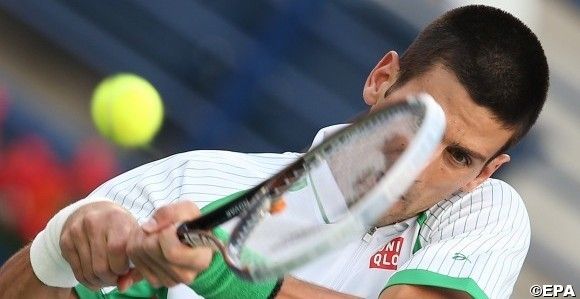Tennis Summit Meeting Agrees To New Anti-Doping Rules
©Daily Tennis News Wire
Tennis’ anti-doping summit meeting, held in New York on Tuesday produced an unequivocal agreement from all parties for the sport to adopt the biological passport program and to increase blood testing as part of an initiative to ensure things are proven to be clean from the use of any outlawed substance.
The International Tennis Federation, the Grand Slam Committee, the ATP World Tour and the WTA were all in unison on the measures will go into effect this year on both the men’s and women’s tours. Up to now cost has been an issue but all parties agreed this is an important matter that should not be hampered by budgets.
In the light of the Lance Armstrong admissions that have rocked cycling, tennis’ program will see more blood tests conducted, particularly out of competition.
Though the ITF currently leads a unified Tennis Anti-Doping Program applying across all tennis events, questions have been asked by some of the sport’s top players regarding its application.
In 2011, the most recent year for which data is available, there were 131 blood tests, 21 of which were conducted out of competition. Now the professed wishes of Novak Djokovic, Roger Federer, Andy Murray and Rafael Nadal will be carried out.
The ITF acted as spokesperson and president Francesco Ricci Bitti said: “The implementation of the Athlete Biological Passport is an important step in the evolution of the Tennis Anti-Doping Program as it provides us with a great tool in the fight against doping in our sport.
“We also hope to have increased support from the National Anti-Doping Agencies around the world who need to do their part if we are to win this battle and make our program more effective. Our thanks to the Grand Slam tournaments, the ATP and WTA who have recognized the need to increase the investment of tennis in anti-doping and to the players who asked for more testing, especially blood testing, over the next few years.”
Bill Babcock, Director of the Grand Slam Committee, added: ““The Grand Slam tournaments have taken an active role in the sport’s anti-doping efforts since the inception of the program and continue to make this a priority every year.
“We are proud to work with the other governing bodies as part of the Tennis Anti-Doping Program which we believe is essential to ensure that tennis remains a clean sport for the future.”
Stacey Allaster, chief executive of the WTA concurred: ““The WTA is proud of its long-standing efforts in anti-doping and believes that it is in the best interests of our sport to adopt the Athlete Biological Passport and to increase both blood and out-of-competition testing.”
And Brad Drewett, the ATP World Tour’s Executive Chairman and President, said: “We have always rigorously supported the Tennis Anti-Doping Program and believe that the move toward the Athlete Biological Passport is the appropriate step for tennis at this time.
“The players have been clear that they support increased investment in anti-doping and we feel that this is the most effective way to show the world that tennis is a clean sport.”


10sBalls Top Stories
- Reasons Behind the Increase in Sex Shops
- Reasons Behind the Increase in Sex Shops
- Reasons Behind the Increase in Sex Shops
- Casibom: Yaşayan Casinolar ve Bahisler Lider Platform
- Sea Star Casino: Play Games Without Registering Online
- JETZT DEN SWEET BONANZA SLOT GRATIS DREHEN
- Азартные игры с Мостбет Казино – испытайте удачу
- Çevrimiçi en iyi yuvalar: Hizmetinizde Karavan Bet Casino
- Top No Deposit Free Spins Offer for Canadians – December 2024
- Abe Bet Casino: Ücretsiz dönüşlerle heyecan hissedin
- Ünlü slotlar çevrimiçi kumarhanelerde başarı bet giriş ücretli formatta
- BasariBet Casino Giriş – En Güzel Canlı Casino Oyunlarına Katılın
- Игра на деньги в казино 1вин казино: безопасность
- De parking de credits sans oublier les Diction Casino Archive sauf que Perception
- Играть в хитовые слоты в надежных клубах azino777





 Tennis Summit Meeting Agrees To New Anti-Doping Rules
Tennis Summit Meeting Agrees To New Anti-Doping Rules